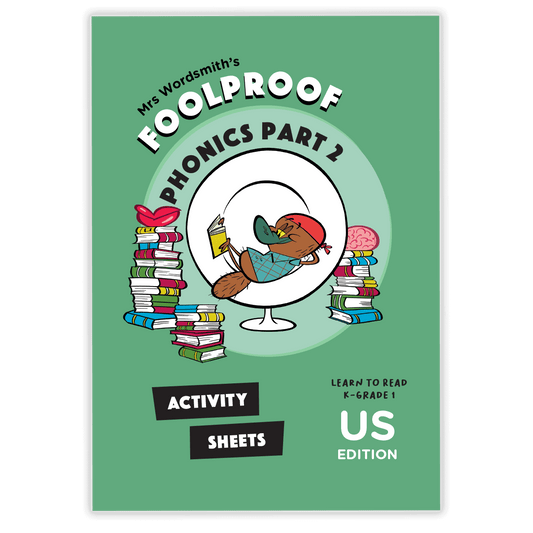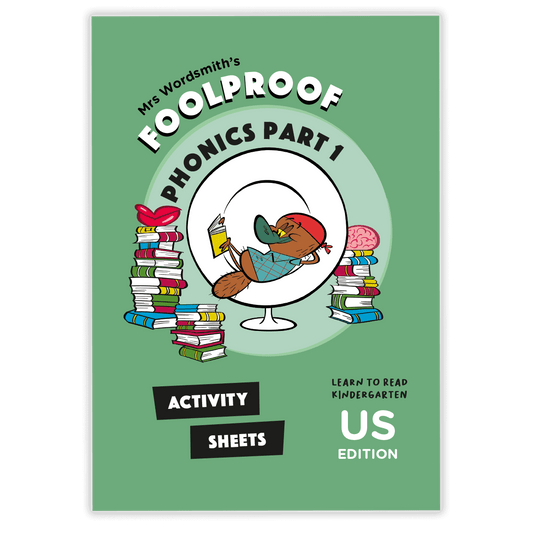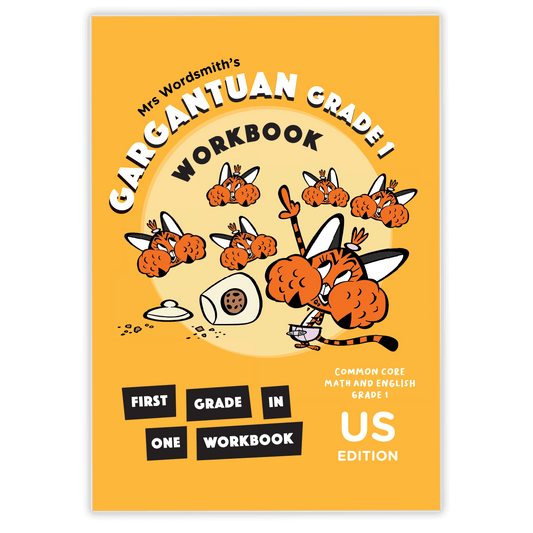With the Phonics Screening Check fast approaching for Year 1 students across the UK, let’s talk about it! In this blog, we cover what it is, what it’s for, and how you can help your child get ready for it (without any stress!).
Table of contents:
What is Phonics?
Phonics is all about cracking the code of written language. It teaches children how letters and groups of letters (graphemes) represent the sounds (phonemes) in spoken words. There are 44 different sounds in English and over 200 ways to spell them… no wonder it can feel tricky! But with a bit of practice, children learn to blend these sounds together to read words – even ones they’ve never seen before. That’s the magic of phonics: it gives kids the tools to decode new words and become independent readers.
The Phonics Screening Check
What is the check?
The Phonics Screening Check is a quick, one-to-one assessment that all Year 1 students of state-funded schools in England and Wales take, usually in June. Some Year 2 students may also sit this assessment, either if they are retaking it or they are new to the country. Your child will sit with their teacher and read 40 words out loud. That’s it! The teacher is there to help and encourage them every step of the way.
What does it test?
The check looks at whether children can use their phonic knowledge to sound out and blend both real words and nonsense words. Some words are simple, others are trickier; there are even multi-syllabic words in there to see if children can blend longer words together. The idea is to check how well they can apply their phonics skills, not just remember words they’ve seen before.
How important is it?
Here’s the good news: the Phonics Screening Check isn’t something for you or your child to worry about. It’s really a tool for teachers, to help them see how well their teaching is working and who might need a bit of extra support. The “pass” mark is usually 32 out of 40, but if your child doesn’t reach it, they’ll simply get more practice and have another go next year.
Why nonsense words?
You might wonder why the check uses nonsense words. The reason is simple: these words make sure children are using their phonics skills to decode, rather than just guessing or remembering words by sight. After all, children will come across lots of new words in books (and there are plenty of silly, made-up words in children’s stories too!).
How Can Parents Help?

Here are some simple, practical ways to support your child as they prepare for the Phonics Screening Check:
- Keep it light and fun! Games like our Blah Blah Blah card game are brilliant for practising sounds and blending them in a playful way. When children laugh and have fun, learning becomes more seamless.
- Read school books again and again. Repetition builds confidence, fluency, and stamina. The more your child reads their school books, the more fluent and comfortable they’ll become.
- Pick the right time. Avoid practising right before bedtime when your child is tired. Instead, choose a time when they’re calm but not exhausted – maybe after a snack or before dinner.
- Short and sweet is best. As with most things, little and often works wonders. Our Readiculous video game, for example, is designed for just 10 minutes of gameplay a day. The more advanced levels within this game are an ideal way to prepare your child for the Phonics Screening Check.
- Celebrate every success. Whether your child gets a tricky word right or just gives it a good try, celebrate their effort. Confidence is key!
- Make the most of workbooks. Our workbooks and worksheets are designed to follow the same sequence as most schools, making them a great way to reinforce what your child is learning in class. They’re packed with fun activities and audio support to help with tricky sounds.
- Mix in some nonsense words. Throw a few silly, made-up words into your reading practice so your child gets used to decoding unfamiliar words. Make it a game: who can come up with the silliest nonsense word?
Final thoughts
The Phonics Screening Check is just one step on your child’s reading journey. With a bit of practice and encouragement, your child will be well on their way to becoming a confident, happy reader. Remember: celebrate the small wins, keep things playful, and enjoy the adventure together!
Written by Jo Jackson, BA Hons, PGCE, Senior Literacy Specialist & Mrs Wordsmith’s Educational Partnerships Lead














 https://mrswordsmith.com
https://mrswordsmith.com
Comment
Leave a comment